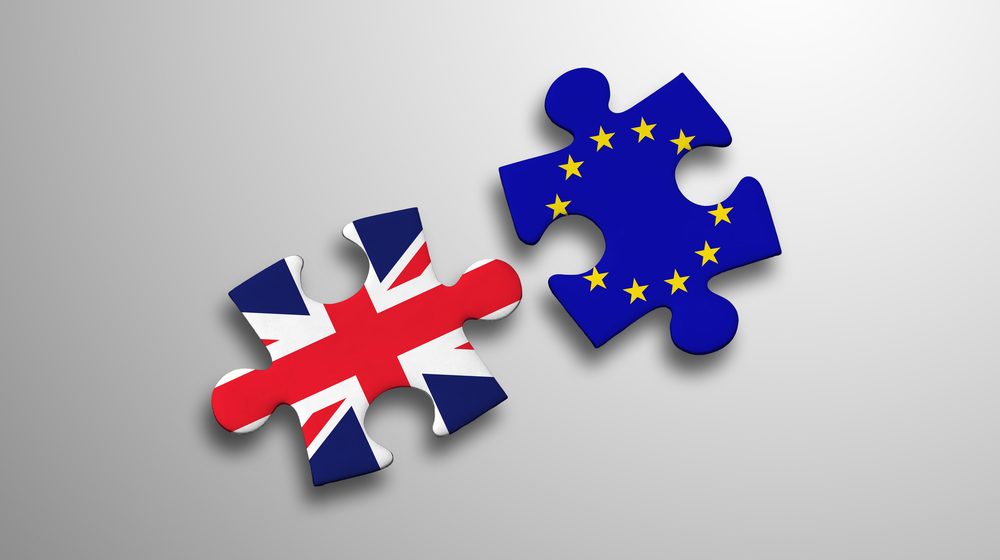When Britain will put forward its Brexit proposing in the spring of 2017, it should consider membership in a reformed European Economic Area, argues Michael Starks. Economic stability within a reformed EEA, which recognised the legitimate concerns of non-EU countries over open-ended migration from the EU, could provide either an interim or a permanent status for the UK in 2019.
In 2017 the UK will put its opening Brexit proposal to the other 27 members of the European Union. On present evidence, the British government will ask for an agreement tailor-made for Britain, not something off-the-shelf. Theresa May, the prime minister, will look to forge a deal combining control on immigration numbers from EU countries whilst also maximising, sector by sector, Single Market access.
In its present mood the EU is likely to reject the UK’s opening position. Charles Grant, in an assessment, published at Centre for European Reform, finds the 27 firm in the view that, if Britain restricts free movement, it cannot be part of the Single Market. Understandably from their perspective, they want us to be worse off than we are now as members and no better off than other European non-members.
So much for the likely starting positions but, once the ritual opening shots have been fired, the posturing, not least for domestic audiences, will need to give way to real negotiation.
Since every sector and every country has different interests of its own, the EU may not want to engage within the framework proposed by the UK. Instead it could counter by offering EEA (European Economic Area) status, colloquially known as the Norway option. In this scenario Mrs May’s government should not dismiss this offer, but see it as a chance to reform the EEA. This does not mean altering the formal EEA agreement, just the way it operates.
Here are the benefits. First, the EEA offers membership of the Single Market without the Common Agricultural Policy, the Fisheries Policy or any entanglement with the Euro. This could settle economic uncertainty, underpin investment, keep the City in business and reduce the risk of recession.
Second, it would allow freedom to develop trade deals with the rest of the world since the UK would no longer be tied to the Common Trade policy (though this would involve leaving the Customs Union).
Third, it provides for cooperation with the EU on such issues as consumer protection, the environment, research and education. EEA membership would give a clear message that, in leaving the EU, the UK does not wish to cut itself off from association with its European neighbours — an important foreign policy statement and, perhaps, an element of reassurance to Scotland.
Fourth, and critically, the EEA Agreement provides a framework within which we could negotiate a pragmatic way of controlling levels of EU migration. Admittedly, it is founded on the four freedoms: Article 1(2) calls for the free movement of goods, persons, services and capital. However, Article 28(3) allows limitations on the freedom of movement for workers ‘on grounds of public policy’.
Clearly we could not simply state that our public policy is to limit EU immigration to a seemingly arbitrary number and expect the other 27 to agree. However, Article 28(3) is there because the idea that free movement between independent states should be completely unrestricted in all circumstances is not politically or economically sensible. A government is bound to have regard to its levels of projected population growth, the number of new houses it needs to build at what speed, the number of new schools and health centres it needs to open etc. in order to cope with rising demand – and to aim to relate net immigration levels to its capabilities.
The EU has already agreed that unrestricted free movement of workers should not apply to Liechtenstein as an EEA member: it has been allowed to introduce a quota system. Liechtenstein’s tiny size is, of course, a special factor. Its case does, however, illustrate the point that the small print of the EEA agreement can be used to make exceptions without any need to redraft Article 1 – and for non-EU members this can go beyond a temporary “emergency brake”. It depends whether the EU is willing to agree them.
It is essential for EU countries to recognise that non-EU members are in a different position from them. The EU members are committed to ever-closer union and the freedom of movement principle for them is based in part on picturing themselves as one polity – a union. Thus limiting access to one EU country from another makes little more sense than, say, limiting access to California from elsewhere within the United States. However, non-EU countries in the EEA are not part of that union and can legitimately have different public policies of their own.
Reforming the EEA
The European Single Market is a wider concept than the EU. It dates back to the European Economic Area agreement of 1992 which was formed between the European Community (EC), as it then was, and the European Free Trade Association (EFTA). Subsequently EFTA members Austria, Finland and Sweden joined the EU, so that today Norway, Iceland and Liechtenstein are the only remaining non-EU EEA members, with Switzerland having a semi-detached status. The UK is an EU member of the Single Market today but could, subject to agreement, re-join it as a non-EU member. This could offer an opportunity for meaningful reform of the way the EEA agreement operates.
There would, of course, be some pills we would have to swallow. We would have to make a financial contribution, though on a much reduced basis from our present payments into the EU budget. It is also commonly said that Norway has little influence over the Single Market rules, though this has been challenged as a “woefully reductive analysis” in a Business for Britain report. The EEA has its own governance structure including a Council, decision-making procedures, dispute resolution procedures, a financial mechanism and Parliamentary cooperation. Making a reality of the EEA decision-making procedures, over rules and funding, would be central to any UK proposal to reform the EEA’s working.
Why should the other members agree any reform of the EEA? It should appeal to the non-EU members since they would benefit from the same changes as the UK. The EU 27 would need to get through any initial emotion of wanting a Win-Lose (as distinct from a Win-Win) outcome – and this probably means getting through the French election too. UK membership of a reformed EEA would reduce economic risk for the EU memberstoo. It would not involve giving the UK special privileges over other EEA countries and they would have made the British government acknowledge the ideology of the four freedoms, which would get them off a hook.
Moreover, the EU could find a group of collaborative associate states on its frontiers strategically desirable as it develops relationships with Turkey and Ukraine, for example, to whose large populations it may not wish to offer fully free movement. A recent proposal for a Continental Partnership published by Bruegel, a European think-tank, could prove to be a seed that grows. It envisaged an inner EU circle as a close union and an outer ring with less integration.
A key attraction of the idea of the UK re-joining a reformed EEA is that it limits the scope for protracted disagreement over drafts of new text. It would not be necessary to start with a blank page for each economic sector over which each of the 27 EU countries, as well as the UK, could have conflicting views. The focus would be on ensuring that the EEA agreement was implemented in such a way as to:
- Meet legitimate (and agreed) concerns over unrestricted free movement on the part of non-EU members of the EEA;
- Give non-EU members an appropriate say over the rules and standards of the Single Market, using existing mechanisms; and
- Agree fair and appropriate levels of financial contribution.
On the face of it, the possibility of the UK joining a reformed EEA looks unlikely to appeal to the Hard Brexiteers within UKIP and part of the Conservative party and some would oppose it. However, as they come to appreciate the full timescale for reaching trading agreements with the United States, China, Japan, India etc., which cannot even be started until after we have left the EU, others may well come to see the EEA as a very sensible interim base from which to negotiate them. If it chose the EEA course, the UK government could expect majority support within Parliament.
Economic stability within a reformed EEA, which recognised the legitimate concerns of non-EU countries over open-ended migration from the EU, could provide either an interim or a permanent status for the UK in 2019.







